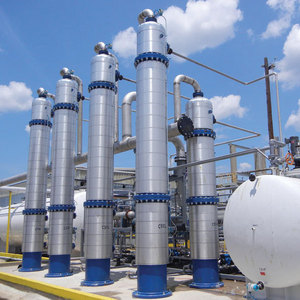Biodiesel: Coming Soon to an Ethanol Plant Near You

PHOTO: JATRODIESEL INC.
April 14, 2014
BY Ron Kotrba
Advertisement
Advertisement
Related Stories
The Trump administration on May 8 announced a new trade deal with the U.K. that the White House said will create a $5 billion export opportunity for U.S. farmers, ranchers and producers, including more than $700 million in ethanol exports.
U.S. fuel ethanol production fell by nearly 2% the week ending May 2, according to data released by the U.S. Energy Information Administration on May 7. Stocks of fuel ethanol were down 1% and exports were down nearly 9%.
The U.S. Energy Information Administration maintained its outlook for 2025 and 2026 fuel ethanol production in its latest Short-Term Energy Outlook, released May 6. The outlook for fuel ethanol exports was lowered.
Ethanol Producer Magazine has announced the keynote speakers for the 2025 International Fuel Ethanol Workshop & Expo (FEW) being held June 9-11, 2025, at the CHI Health Center in Omaha, Nebraska. The general session will take place June 10.
Trucent provides practical strategies for optimizing corn oil recovery and quality.





